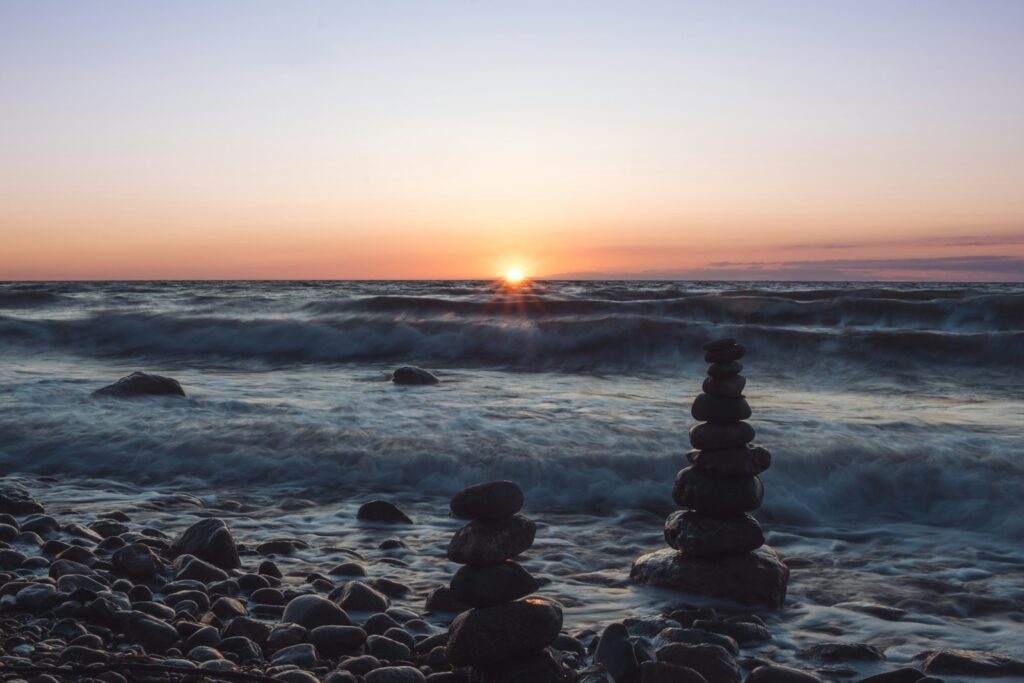Poetry as an art of longing is an artistic concept of using one’s sense of longing. Artistic because it seems like we breathe poetry into life, as if life were poetry. Yet, this artistic and poetic side of life often emanates with tragedy. A poetic life happens when tragedy and beauty are married. Some may say that it is poetry that makes tragedy beautiful.
Everything is crumbling and decrepit, but poetical, sad, and beautiful in extreme. Anton Chekhov, from a letter to A. N Pleshtcheyev, June 1888.
Longing Arts
Art has many forms of creation and drives. Therefore, in Jungian, art as an expression of creativity does not particularly belong to one group of people, so-called creative people, but more so as an instinct. Lies deep within the unconscious. Indeed, some people have a’shortcut’ and easier access to that instinct, but that doesn’t mean that it’s their privilege.
While, according to Aristotle, art is more like a product of imitation.
Imitation, then, is one instinct of our nature. Next, there is the instinct for ‘harmony’ and rhythm, metres being manifestly sections of rhythm. Persons, therefore, starting with this natural gift developed by degrees their special aptitudes, till their rude improvisations gave birth to poetry.
The distinction between Jung and Aristotle about art is between creation and imitation. But both had a similar understanding that it was a form of our instinctual expression. For Jung, to create means the delivery of contents from our collective unconscious. While, for Aristotle, art is a medium for imitation, distinguished by three differences: the medium, the object, and the manner.
This instinctual drive to create or to imitate lies within all of us. This explains why some of us stick to innovation and repetition as our instinctual habits. This also explains the metaphorical meaning of being born, die, and reborn in life.
The urge to innovate and imitate also influences how we live. We learn about life by observing our environment. Some of us then learn by innovating, improvising, or imitating.
The absence of expressing one of these instincts is perhaps what causes us to feel this longing for the arts. Longing to express and get in touch that burst from its absence.

Melancholia and the Expression of Longing
Longing is not a mind game, and that is why I’ve always trusted it. Longing is raw, longing is real; it makes one listen and be attentive to what’s inside. There is mad honesty in longing. So mad that it feels suitable. It is very suitable for me, I’m telling you—I don’t even want to write it or write about it. I want to be it.
Anna Sexton, from a self-portrait in letters
Melancholia and longing have an interconnection. When one feels melancholic, one is often in the grip of longing. Hence, melancholia is interpreted as a deep-seated feeling of sadness. Instead, the ancient sense referred to melancholy as one of the four temperaments. Psychologically, melancholia has a close relationship with depression. What lies beneath the surface of consciousness and depression may need a breakthrough before realization. Melancholia, because of unrecognized longing, perhaps is a signal from our unconscious content that needs to be delivered.
Longing for things obscure
Would recede and approach
There was no forgetting that would draw me away,
No remembering that would draw me close
To a woman
Who, if the moon touched her,
Would cry out: ‘I am the moon’
Mahmoud Darwish, The Train Went By
Longing Poetry and its Source
Many would agree if one said that poetry is the song of souls and the language of hearts. Quoting Leo Tolstoy in his novel Anna Karenina, I think…if it is true that there are many minds as there are many heads, then there are as many kinds of love as there are hearts. Tolstoy’s quote rings true since there are also many kinds of sources for longing, as there are many souls.

Longing for Homeland
Medieval, or Middle Ages, also known as Dark Ages, lasted for about 1000 years. I highlighted this era because its hallmark is the fall of two empires. The medieval era started with the fall of the Western Roman Empire and ended with the fall of the Constantinople Empire. During this time, mass migration also happened, and this situation influenced its literature, which correlated with longing.
Mass migration created a situation where many people felt exiled and alienated from their homeland. These feelings settled deep within and became a longing. Therefore, many poets wrote about their longing for their homeland. Also, since this era, many poets have written epic poems.
Excerpts
O our beloved, can we have hope after having gone away / to be close again
and can the time of friendship return?
When I remember what was between me and you / my heart almost tears
with memories of you
The tribe’s caravans left hurriedly in the early morning / with flowing tears
and strong breathing

We lived in peace as the hopes willed it / our ties and union continuing
And now time has roughly torn us apart / and we can do nothing although
we would like to
I would never have thought that the encounter between us would be
followed by / distance, nor that the attractive bond between us would be
sundered
Whoever spent the night and found the pain that I have / does not know
what comes to him and what he leaves
Ibn Farkun, Divan
Epic Poem
Awake! for Morning in the Bowl of Night Has flung the Stone that puts the Stars to Flight: And Lo! the Hunter of the East has caught The Sultan’s Turret in a Noose of Light.
Dreaming when Dawn’s Left Hand was in the Sky I heard a Voice within the Tavern cry, “Awake, my Little ones, and fill the Cup Before Life’s Liquor in its Cup be dry.”
And, as the Cock crew, those who stood before The Tavern shouted—”Open then the Door. You know how little while we have to stay, And, once departed, may return no more.”
Now the New Year reviving old Desires, The thoughtful Soul to Solitude retires, Where the WHITE HAND OF MOSES on the Bough Puts out, and Jesus from the Ground suspires.
Iram indeed is gone with all its Rose, And Jamshyd’s Sev’n-ring’d Cup where no one knows; But still the Vine her ancient Ruby yields, And still a Garden by the Water blows. Omar Khayyam, The Rubaiyat of Omar Khayyam.
Longing for spiritual reunion
Another source of longing that is mostly found in poetry is a longing for a reunion with a loved one. The inner struggle of having a longing between the lover and the beloved is in spiritualism. These inner struggles also become the source of longing for romanticism. Struggles to find the ideal person and to be the ideal self.
Romanticism circles literature in the search for subjective truth. This is the reason romanticism highlights personal emotion, feeling, and experience. The works used many adjectives and emotional perspectives, which also opened the gate to mysticism.
Excerpt
Who but you can feel the pain that courses through my frame? How afraid my poor heart is, how it trembles, how it’s yearning, only you can know, and you alone! No matter where I go, what sorrow, oh what sorrow there is within my breast! No sooner am I left alone. Goethe, Faust I.
And now, as deep into the wood as we
Might mark a lynx’s eye, there glimmered light
Fair faces and a rush of garments white,
Plainer and plainer shewing, till at last
Into the widest alley they all past,
Making directly for the woodland altar.
O kindly muse! let not my weak tongue faulter
In telling of this goodly company,
Of their old piety, and of their glee:
But let a portion of ethereal dew
Fall on my head, and presently unmew
My soul; that I may dare, in wayfaring,
To stammer where old Chaucer used to sing.
John Keats, Endymion
References:
ENDYMION – Poems by John Keats (1795-1821) (keats-poems.com)
Previously posted on loveroftheory.com 16-12-2023



